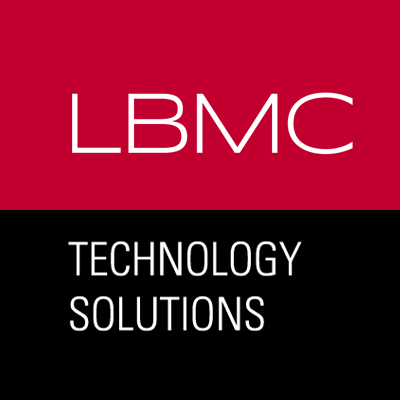Are You Ready for a Connected ERP Ecosystem? 6 Questions to Ask
Written byLBMC Technology Solutions

In today’s cloud-driven world, integrations have come a long way. Gone are the days of relying solely on import/export files or manual CSV uploads to move data between systems. Now, organizations expect real-time integration - sometimes between four or five different platforms at once.
Architecting an integration strategy isn’t as simple as connecting point A to point B. You need to map out how data flows between systems, determine which platform is the master record for each data type, and, most importantly, know exactly what fields are moving in your transactions.
As you design your connected ERP ecosystem, here are six questions to ask:
1. Are all products using true APIs, and how widely are they used?
Many products claim to have APIs, but some are proprietary or limited-use rather than true REST or SOAP APIs. Dig into the details to ensure your integrations can be built efficiently and maintained long-term.2. Are there limits to the APIs?
What’s the transaction limit per minute or month? Are there additional costs if you exceed them? Understanding these limits helps you plan for growth without facing unexpected fees or performance bottlenecks.3. How real-time does your data need to be?
Does your business require transactions to sync instantly, or is a 15-, 30-, or 60-minute delay acceptable? Define this early so your integration design aligns with operational needs.4. Is there an out-of-the-box integration available, or are you building from scratch?
Sometimes pre-built integrations cover your needs. Other times, you’ll need a custom solution. Be sure to evaluate all required products and costs—building your own integration can become expensive if hidden requirements surface mid-project.5. What’s the best way to test your integrations?
Not all systems offer implementation environments that mirror production. Ensuring your testing environment replicates your live environment prevents launch-day surprises and reduces risk.6. What happens when an API call fails?
Does everything stop, or does the transaction move to a “parking area” for later review? Building safety valves into your integrations avoids data gaps, duplicate entries, and reconciliation headaches down the line.At LBMC, we help organizations implement ERP systems that fit their goals and processes. At Venn Technology, we specialize in building smart, scalable integrations that connect those ERP systems seamlessly to the rest of your tech stack.
Together, we believe your ERP ecosystem should work for you—not create more work. If you’re ready to build a connected ecosystem that moves as fast as your business does, reach out to LBMC at info@lbmc.com or connect with Venn Technology to explore integration solutions that make your data flow smarter, faster, and better.

About the Author
LBMC Technology Solutions
For over 25 years, LBMC Technology Solutions has been inspiring greatness through technology. We understand how important a reliable technology infrastructure is to your one-of-a-kind business. As your partner, we evaluate your unique business processes and current systems, then identify and apply the most effective solutions. We specialize in IT Services Solutions & Support, Automation, ERP (Enterprise Resource Planning), and Integration & Software Development. Our experienced client strategy teams, certified technical experts, software consultants, developers, network engineers, project managers, controllers/CFOs, and business managers are dedicated to delivering innovative and effective solutions.
